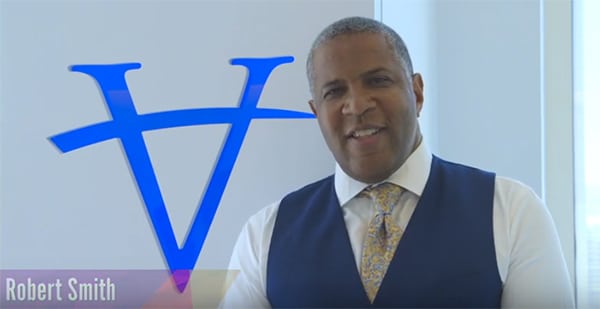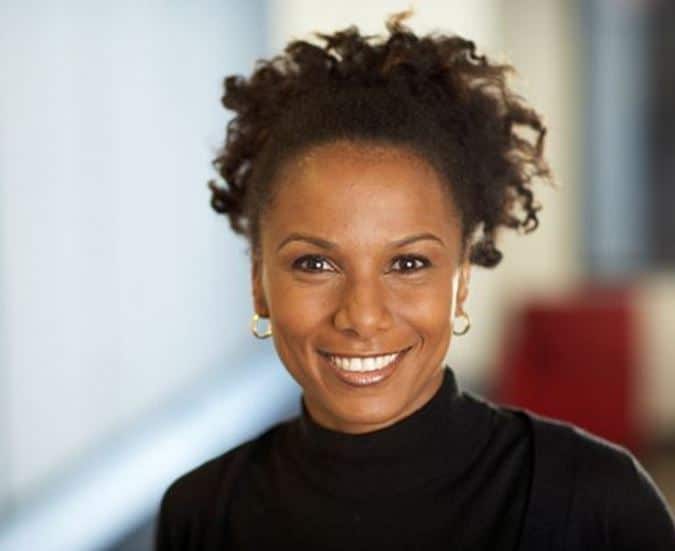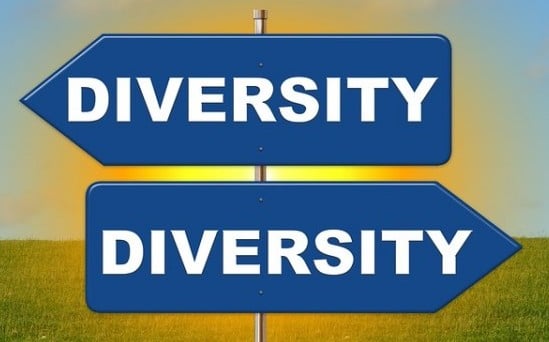Video via Andrea Hoffman/Youtube
Ghana’s Burgeoning Tech Start-Up World Is Showing the Innovative Spirit to Make It the Next Silicon Valley
https://www.youtube.com/watch?v=a2GFnnmKIs4
Whether you are talking about a Silicon Valley Roundabout, Fen or Wadi – there is no shortage of countries looking to adorn their mantelpieces with a hi-tech hub.
But in the developing world, and especially in Africa, getting that unique mix of tech and business skills together, not to mention investment, can be a big ask.
David Reid visited Accra, in Ghana to see a school for start-ups with big ambitions.
Source: Rana02
Combating Racism With Coding: Van Jones Discusses Teaching 100,000 Low-Income Kids How to Code
All across the nation, the Black community has marched and rallied, chanted and sung, pushed and fought for justice after the slayings of unarmed Black men by white authorities.
As the community continues discussing solutions to ending the types of racial profiling that too often steals the lives of innocent young Black men, civil rights activist Van Jones hopes to unlock coding as the secret weapon in the war against racism.
The inspiration came shortly after the 2012 death of Trayvon Martin, the Florida teen who was gunned down by volunteer neighborhood watchman George Zimmerman.
Zimmerman was acquitted of murder.
Jones was discussing race in America with a music icon and his close friend, Prince.
“Every time you see a Black kid wearing a hoodie, you say: there’s a thug,” Jones recalled telling Prince during an interview with USA Today. “If you see a white kid wearing a hoodie, you say: there’s Mark Zuckerberg. I said, ‘That’s because of racism.’ ”
That’s when Prince delivered an answer that would light a fire under Jones.
“Maybe so,” Jones said Prince replied. “Or maybe you civil rights guys haven’t created enough Mark Zuckerbergs.”
From that moment forward, the challenge was on.
Jones launched Yes We Code as a new initiative under his Rebuild the Dream organization.
The initiative hopes to teach 100,000 low-income youths how to write code.
Prince was so excited about the initiative that he promoted it himself back in July as he headlined the Essence Festival in New Orleans.
Yes We Code also held its first hackathon in the city.
Prince’s rebuttal to Jones’ question made the civil rights leader realize that giving Black kids the tools they need to thrive in today’s economy is key to helping them overcome prejudice and change the way they are perceived by the population at large.
The Black community did, indeed, need more Mark Zuckerbergs.
“How do we create a situation that when you see a young Black kid in a hoodie, you think, maybe I should go up and ask the kid for a loan or a job as opposed to assuming the kid’s a threat,” Jones continued. “… Yes We Code aspires to become the United Negro College Fund equivalent for coding education. Yes We Code exists to find and fund the next Mark Zuckerberg and Sheryl Sandberg in communities you would never expect to find them.”
The initiative comes at a perfect time.
The tech industry is desperately seeking young, Black talent.
Some of today’s biggest tech giants were met with backlash when diversity reports revealed that companies like Google and Facebook had very few Black employees.
In addition to being met with backlash by the public, it also served as a reminder for the companies that there was an entire market of ideas they hadn’t fully tapped into because they were missing key voices from communities of color.
Black consumers are some of the heaviest technology users and yet they were hardly present in that industry.
Sadly, many children of color have no idea that they would be able to flourish in the tech space.
“Aptitude tests show one out of five kids of any color have an inherent aptitude for the kind of problem-solving that is required to be a computer programmer,” Jones said. “So that means one out of five kids out here in low-income communities, Native American reservations, Appalachia, housing projects, barrios, ghettos could be on the Mark Zuckerberg track. The problem is their mother doesn’t know, their father doesn’t know, the coach doesn’t know, the teacher doesn’t know, the preacher doesn’t know. So they all want to be LeBron James.”
The NBA welcomes a very small number of new players every year, which means many of these young kids with NBA dreams will be met with disappointment.
In the tech field, however, opportunities are vast.
“Meanwhile, the technology sector says they are going to be a million workers short in eight years,” Jones said. “And if we are not careful, we will have 15 Black Urkels trying out for a million jobs.”
For that reason, Jones believes the Black community has to focus on guiding the youths and helping them reach such opportunities.
That is the real forefront of the battle against racism — putting Black people, especially youths, in a position to succeed and flourish.
“The forward march of technology is unstoppable,” he said. “The forward march of communities wanting to be a part of the process of writing the future is unstoppable. The miracle that’s happening is that these two inevitable forces are coming together constructively. In the last century, this would have been protests, lawsuits and a lot of vitriol.”
In the midst of racial tensions across America, the war against racism has to be just as prevalent in the offices of Silicon Valley as it is in the streets of Ferguson, Missouri.
This Dell Lab Is Crafting the Future of the Internet in the Most Fascinating Way
In the race to connect sensors and devices into an Internet of Things, Dell doesn’t want to get left behind. The company opened a lab dedicated to researching, testing and building Internet-connected systems for enterprises.
Source: CIO
CODE2040: Helping Minority Coders Find Their Way to Silicon Valley
Blacks in Technology recently sat down with Laura Weidman Powers (founding executive director of CODE2040) for a one-on-one interview about the CODE2040 program.
In case you aren’t aware, CODE2040 is an organization that matches high-performing Black and Latino undergraduate and graduate coders and software engineering students with Silicon Valley startups for summer internships, and also provides them with the insight, networks and support to ensure their successful participation in the high-tech innovation economy
When was the organization founded?
CODE2040 was founded in February 2012. We’re a startup, too!
Who is CODE2040 (employees and roles)?
Tristan Walker is the founder and chair of the board of CODE2040 and I (Laura Weidman Powers) am the organization’s founding executive director.
Amy Schapiro is CODE2040’s program manager, running point on all recruiting and summer programming.
Jonathan Brack leads program evaluation and alumni programming, ensuring we’re maximizing our effectiveness and supporting our alums.
Jocelyn Jarrett manages accounting and HR operations, using her expertise in helping set up nonprofits to ensure we’re making efficient use of our resources.
The rest of the board (beyond Tristan) is Ben Horowitz, Amber Saloner Tennant, Marc Hedlund and Bea Perez, and we’re fortunate to have an awesome group of advisers and volunteers as well.
What is the goal of CODE2040?
The latest census projections show that people of color will be the majority in the United States in the year 2040. And yet there is no indication that the substantial minority achievement gap will be closed by that same year. We launched CODE2040 to make a direct impact on the achievement gap by increasing the numbers of underrepresented minorities participating in the high-value innovation economy – an economy centered in Silicon Valley.
How many students participate in the program?
We ran a pilot of the program with five students at five startups the first summer, 2012, and we’ll have around 20 students participating this coming summer. We’ll be continuing to scale from there!
In talking with the students, what seems to be the biggest thing they take away from the program?
My favorite thing is something one fellow said to me: Before participating in CODE2040 and hearing from all the speakers and meeting with her executive coach, she thought there was a mythical “entrepreneur” personality type that meant that you were destined to be a founder. After hearing firsthand from dozens of entrepreneurs, she realized that they were ordinary people with great ideas, great passion and great work ethic, and she could be a founder, too.
Read more at: blacksintechnology.net
Are Some White People’s Fear of Discussing Race Holding Back Diversity Progress in Silicon Valley?
Facebook’s global head of diversity, Maxine Williams, is taking a different approach to addressing the discussion of race in Silicon Valley, and, according to her, there’s no room for people to be sensitive about the subject.
It’s been a year since Williams was given the task of improving diversity within Facebook and creating a space that welcomed employees from a variety of different backgrounds.
Needless to say, the task certainly wasn’t going to be an easy one.
While the company still isn’t anywhere near as diverse as it has the potential to be, Williams may have unlocked the secret to really getting things moving forward – stop being so sensitive.
Williams sat down with Forbes and explained that many of the white people in the office were uncomfortable about discussing race.
At one point, she recalled that one white employee asked her if it was OK for them to even use the word “Black.”
“I would literally have conversations with people where they would say to me, ‘Can I say the word Black?’” Williams recalled. “And I was like, ‘Wow, these were the conversations we’re having?’”
Williams said years of sensitivity training and lawyers ready to pounce at the sign of any relatively offensive remark has white people terrified of even bringing up diversity and race in the workplace.
The idea of talking to a Black person in the office becomes a game of social Mine Sweeper where any wrong move can end in absolute disaster.
Williams says that to a certain extent that idea needs to be pushed out of the workplace.
“This needs to be a space where people can ask stupid questions and then be forgiven,” Williams said. “In the typical workplace that has employment lawyers, nobody wants you asking stupid questions because they could be offensive. You won’t want to ask that Black person, ‘Do you wash your hair?’ You just don’t. It raises risk … so we become hesitant to engage.”
Williams has flipped that philosophy on its head at Facebook.
“We’ve flipped that around,” she continued. “I’ve said to people: It’s OK to ask those things, but then I want you to forgive people when they ask stupid questions. What I came to see is the hesitation came because I’m operating in a country that has a heightened sensitivity around race, where, quite frankly, white people are afraid to engage. They’re afraid of stepping in the wrong place.”
According to Williams, the push for diversity in the tech sphere will fall short if people continue to be too sensitive about the subject.
“I think sensitivity was holding us back from being bold on diversity,” Williams said about Facebook. “We were bold on products, right? We would achieve things that you never thought were achievable. But on these issues of identity, there was hesitation and sensitivity.”
Williams explained that many times white people were “well intentioned” because they didn’t want to hurt anyone’s feelings or make a remark that could be perceived as racist.
In the end, all that really did was hinder progress.
Williams continues to push employees to be open and honest and ask those “stupid questions.”
That, she says, is the only way to truly get everyone engaged in a much-needed conversation about race.
Jesse Jackson Reveals Next Steps to Increase Diversity, Inclusion in Silicon Valley
Now that major tech companies like Facebook and Google have released their diversity statistics to the public, the Rev. Jesse Jackson is ready to launch the next phase of his plan to increase diversity in Silicon Valley.
Jackson announced the next phase of his plan on The Guardian over the weekend and bashed Silicon Valley for its “shameful” record on equality.
Through his social justice organization Rainbow Push, Jackson urged the hi-tech giants to release statistics about the demographics of their workforce.
With many tech giants having African-Americans making up less than 2 percent of their workforce and almost none in executive positions, Jackson stated that these companies “must put a real plan in place.”
“Treat inclusion and diversity just as you would any serious business line of a company and measure them,” Jackson wrote.
Representatives from the companies have already publicly criticized the lack of diversity in Silicon Valley, but some believe that the companies have not followed up with an efficient response to the problem at hand.
Jackson stated that the “face of technology” needs to change, and he believes Rainbow Push has the plan to do it.
According to the civil rights activist, the organization will be working hard over the next few months to “review the performance and causes that have perpetuated the lack of diversity and inclusion in technology,” get corporate leaders involved in implementing the necessary changes, and “identify strategies and solutions” that could actually help “change the face of technology companies to mirror the consumer and demographic base of the community.”
According to Jackson, African-Americans “consume more technology” than the average American although they are vastly “underrepresented in the boardrooms.”
The blueprint for Rainbow Push’s next plan of action also lists several other objectives for the coming months.
The organization will aim to create an annual diversity report that will keep track of diversity and inclusion in Silicon Valley.
Other goals for the plan include launching a pledge commitment and 2020 digital inclusion and diversity vision and creating an advisory committee that will be dedicated solely to coming up with the best practices to help nurture diversity in the tech space.
Jackson went on to say that the next phase in Rainbow Push’s plan will continue the fight for equality for minorities.
“In our journey from freedom to equality, we’ve used all of the tools and resources: we vote; we legislate; we litigate; we advocate; we leverage,” he wrote. “And with a mission stepped in our faith to seek justice, fairness and equality, we will fight and win.”







